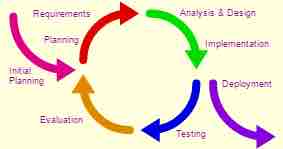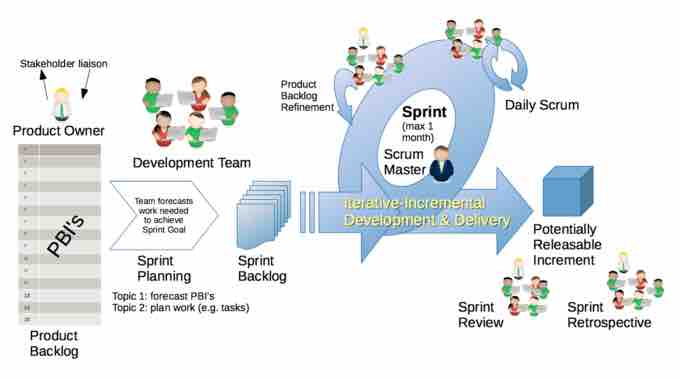Management is a rapidly evolving field. Even now startups all over the world are trying out new, innovative ways of looking at how to align their resources, how to make decisions, and what managerial approaches (or lack of managerial approaches) might yield the best culture for growth. It's an intriguing time for management, and experimentation is constant.
When looking at new management approaches, it's useful to consider the area in which these organizations operate. Software, non-profit, and entrepreneurship are all seeing substantial deviations from standard corporate management approaches.
Software
The two big words in software management over the past decade or two have been Scrum and Agile. Each of these approaches is a management philosophy equipped for rapid construction, iteration, and implementation.

Iterative Development
The agile management philosophy is an adaptation of iterative management. The concept is fairly simple. All production of new and innovative products and services will require constant refinement and improvement through iterative experimentation.
Scrum has been around since the late 1980s, but not particularly prevalent until the early 21st century. Scrum is defined as a feedback-driven empirical approach that highlights transparency, inspection, and adaptation. In terms of values, scrum discards traditional hierarchy and promotes commitment, courage, focus, openness, and respect in a team-oriented, objectives-driven environment. In terms of structure, you'll find three groups:
Development Team - This will be your functional specialists, all collaborating on a daily basis to construct a facet (or perhaps the entirety) of a new piece of software. In scrum, this is quite often cross-functional.
Scrum Master - A facilitator, this individual focuses on removing impediments and acting as a buffer between the team and external distractions (usually integration with other teams). The scrum master will also assess progress holistically, and ensure alignment with the scrum mentality.
Product Owner (PO) - The PO focuses on being a voice of the customer and the representation of stakeholders in the team environment. Stakeholders, in this context, represent anyone with an interest in the output of that team (primarily organizational owners and other teams). The PO is not a manager, but instead a bridge between the team and the external environment they operate in.

Scrum Framework
This is an excellent illustration of how scrum mentality works. It is intrinsically a horizontal management style, meaning there is no particular managerial presence. The idea is the that the process itself is self-sustaining in pursuit of agreed upon objectives via an iterative cycle of production.
Social Entrepreneurship
Utilizing the ever-evolving perspectives of start up companies and entrepreneurs, non-profit organizations and other community-oriented groups have begun replacing traditional management approaches with a more grassroots perspective. A key metric to a social entrepreneur isn't profit but community impact, usually in areas such as poverty alleviation, health care, education, and community development. This management style is small, focused, innovation-driven, and non-hierarchical.